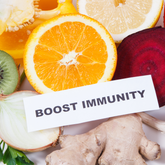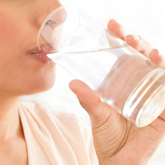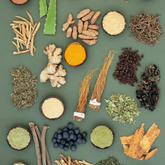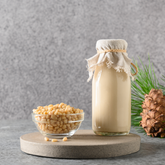The dairy industry’s contribution to climate change and environmental degradation has become impossible to ignore. This, in addition to animal welfare and health concerns, has motivated record numbers of consumers to reduce their dairy intake and switch to plant-based alternatives. In the UK, plant-based milk sales rose by 30% over the past year and almost a third of British people now drink alternative milk. This surge in demand, which extends beyond just milk to include plant-based yoghurts and cheeses too, reflects a broader societal shift towards a more conscious and sustainable way of living.
All available studies show that the environmental impact of plant-based milk is significantly lower than that of dairy milk. Plant-based milks perform better across almost every sustainability indicator, from greenhouse gas emissions to use of land and water. The dairy industry is extremely resource intensive: a seminal report by the University of Oxford found that producing a 200ml glass of dairy milk releases at least three times more greenhouse gas emissions and requires nine times more land than any plant-based alternative. The report also found that producing one litre of dairy requires a staggering 628 litres of water compared to just 370 for almond, 270 for rice, 48 for oat and a mere 28 for soy milk.
On aggregate, the alternative milk with the lowest adverse environment impact is oat milk. According to a life cycle assessment (LCA) released by Swedish brand Oatly, not only does the cultivation of oats for milk result in 80% less greenhouse gases, 79% less land usage and consume 60% less energy than dairy but it also delivers a variety of agricultural benefits which actually positively impact the environment. As a winter hardy crop, oats can be grown all year round and as a result are often used is diverse crop rotations. Crop rotation systems reduce erosion and boost the soil’s ability to store carbon, thereby offsetting emissions. Oats are also a low-input crop and grow effectively with minimal water and little to no fertilisers which serves to protect underground aquifers and prevent damage to local biodiversity. Ultimately, plant-based milks are the superior choice for consumers who have the best interests of the environment in mind.
www.milkyplant.com
BIBLIOGRAPHY
Price, A., 2021. One in three Brits drink plant-based milk as oat overtakes almond. [online] New Food Magazine. Available at: https://www.newfoodmagazine.com/news/156808/plant-based-milk-growth/ [Accessed 29 September 2021].
Poore, J. and Nemecek, T., 2018. Reducing food’s environmental impacts through producers and consumers. Science, [online] 360(6392), pp.987-992. Available at: https://www.science.org/doi/10.1126/science.aaq0216 [Accessed 30 September 2021].
Floren, B., Nilsson, K. and Wallman, M., 2013. LCA på färsk och aseptisk havredryck.. Gothenburg, Sweden.
Popescu Slavikova, S., 2018. 10 Benefits of Crop Rotation in Agriculture. [online] Greentumble. Available at: https://greentumble.com/10-benefits-of-crop-rotation/#climate
[Accessed 1 October 2021].















